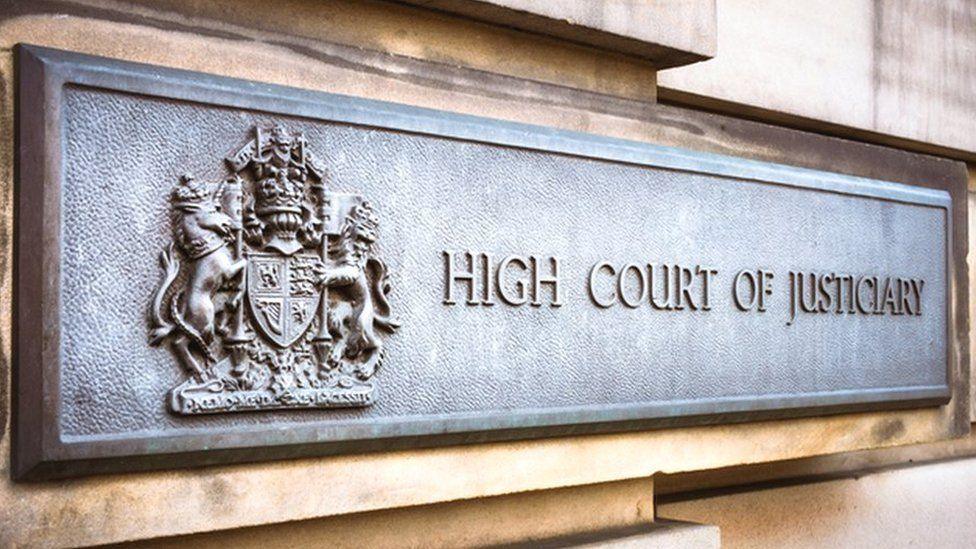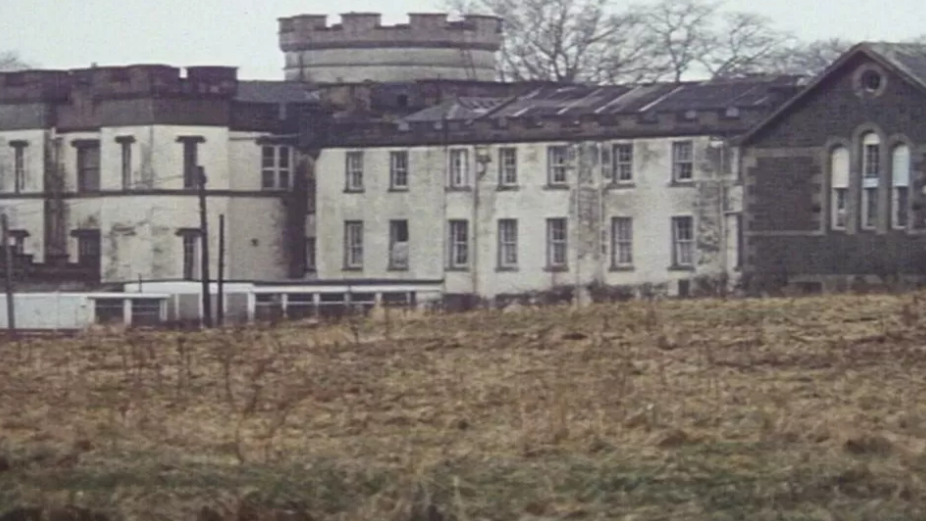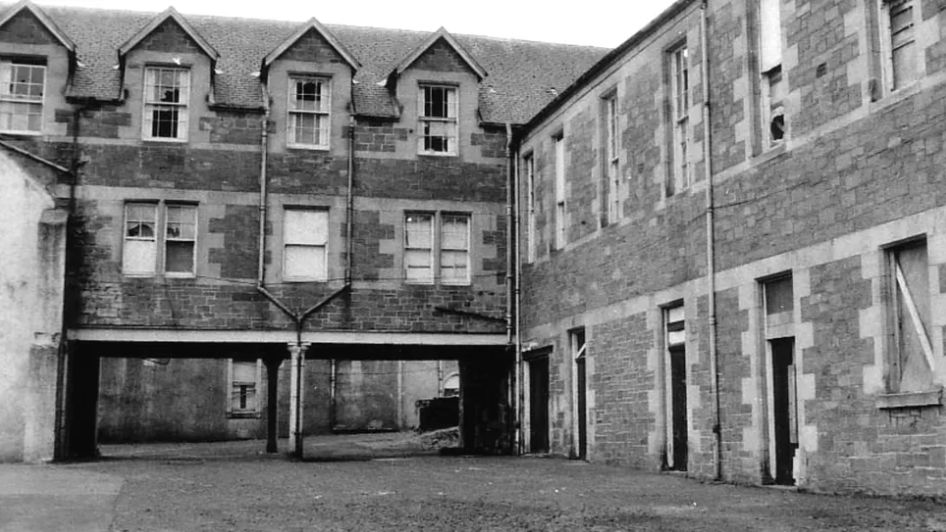Nun and carer who abused children have sentences cut

- Published
A nun and a care worker convicted of abusing vulnerable children at an orphanage in Lanark have had their sentences reduced.
Sister Eileen Igoe, 79, and carer Margaret Hughes, 77, mistreated young people at Smyllum Park between 1969 and its closure in 1981.
The pair were initially jailed for three years each following a six-week trial at Airdrie Sheriff Court in January.
But the Court of Appeal said “insufficient” weight had been given to their age and shortened their sentence to seven months from the date of their initial conviction.
Nuns and carer jailed for abusing orphanage children
- Published18 January 2024
Nuns and carer guilty of abusing orphanage children
- Published13 December 2023
'I was abused by nuns for a decade'
- Published15 September 2017
In a written judgement on Friday, Lord Matthews said he would have imposed a sentence of probation with unpaid work.
However he acknowledged the two women had already been in custody since 18 January this year and that a seven-month term – almost four months of which have already been served – was sufficient.
Igoe and Hughes were convicted of abuse at the orphanage alongside Sister Sarah McDermott, 79.
Warning - this article contains distressing content
During sentencing at Airdrie Sheriff Court, Sheriff Scott Pattison said there was no alternative to prison for the three women.
The sheriff said the "lasting harm" and "serious nature" of the offences meant only custodial sentences were appropriate.
The trial heard Igoe, of Edinburgh, force fed children and made one eat their own vomit as well as striking one boy on the head and body.
Hughes, of Lanark, seized one boy by the hair before striking him with her arm. She also forced a girl into a freezing bath and held her head under water.

Smyllum Park orphanage closed in 1981
Lawyers for Igoe and Hughes argued the sentences for both were “too harsh” and that their clients had health problems which Sheriff Pattison should have considered when deciding what jail term to impose.
They also said the two had been “model citizens” for several decades.
In his written judgement, Lord Matthews acknowledged they posed “no future risk to the public”.
He also cited the length of time that had passed since their crimes and rule a shorter sentence should have been imposed.
He wrote: “We are satisfied that the sheriff attached insufficient weight to the age and state of health of the appellants and the length of time which has passed, during which they have led useful and pro-social lives.
“The very fact of conviction of such elderly people well over four decades past the commission of their crimes is punitive, serves to mark the community’s disapproval of it and can be taken to have some generally deterrent effect.
“In all the circumstances, relevant sentencing aims could have been met by sentences of a different nature.”
Home at centre of abuse allegations
Smyllum Park closed its doors in 1981 and has been at the centre of allegations of abuse.
A 2017 investigation by Radio 4’s File on 4 uncovered evidence that at least 400 children who died at the orphanage were buried in unmarked graves.
During the trial in January, one woman told how she was beaten by McDermott after reporting that she had seen her brother being sexually abused in a toilet cubicle.
She said volunteer worker Brian Dailey, who was later jailed for 15 years for abusing youngsters, molested the three-year-old in a cubicle.
But rather than investigate the abuse, McDermott slapped the girl and told her she was bringing her "filthy home habits into a good Catholic place".
McDermott also struck another girl with rosary beads and repeatedly struck her on the head and body.

Smyllum Park has been at the centre of abuse allegations for decades
The Scottish Child Abuse Inquiry said in 2018 that youngsters had been sexually abused and beaten with leather straps, hairbrushes and crucifixes.
A report by Lady Smith, who is chairing the inquiry, said it was a place of "fear, threat and excessive discipline" and that children found "no love, no compassion, no dignity and no comfort" in Smyllum.
If you have been affected by the issues in this story, help and support is available via the BBC Action Line.